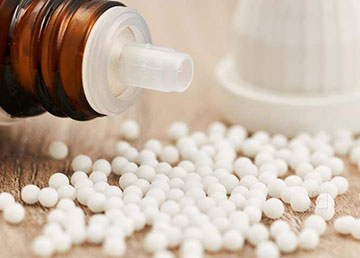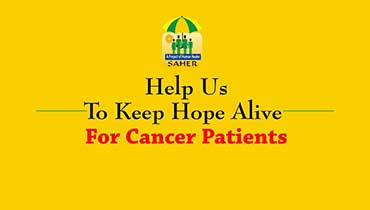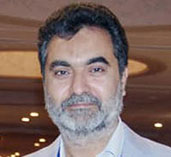
Myelodysplastic Syndrome and Homeopathic Treatment
MYELODYSPLASTIC SYNDROME
MYELODYSPLASTIC SYNDROME is a group of disorders in which blood cells don’t form properly, immature blood cells in born marrow don’t mature; therefore normal healthy blood cells aren’t formed. It is commonly considered that there is no treatment for myelodysplastic syndrome. You can only reduce or manage bad health ailments. At some level, your doctor may suggest chemotherapy or bone marrow transplant.
Sign and symptoms
At early stages, you may not experience any sign and symptoms, but with the time you may experience following symptoms
- Unusual paleness of skin
- Shortness of breath
- Easy bruising
- Bleeding due to the low platelets count
- Pinpoint radish spots under the skin
- Tiredness
- Frequent infections
When to visit the doctor
Make an immediate appointment if you experience any sign and symptoms that make you worry.
Causes
In healthy individuals, the bone marrow makes immature blood cells that mature with the passage of time. In myelodysplastic syndrome something disturbs this normal procedure and more immature blood cells are formed. Formation of these defective cells leads to the low blood cells level in the body. Due to which sign and symptoms of anemia occur.
- Fatigue, tiredness and shortness of breath is caused by anemia,
- Infections are caused by leucopenia(decreased number of white blood cells)
- Bleeding caused by thrombocytopenia(low platelets count)
In some cases, the myelodysplastic syndrome hasn’t any known cause. Previous cancer treatments, exposure to the radiation and chemotherapy, constant use of certain drugs like benzene, heavy metals, etc.
Types of myelodysplastic syndromes
According to the criteria of WHO, MDS is divided into many subtypes according to the type of red blood cells, platelets, and white blood cells involvement. Types of Myelodysplastic syndrome include:
Ø MDS with single lineage dysplasia (MDS-SLD):
This is a rare type of MDS that sometimes progress as acute myeloid leukemia. Otherwise, patients with this type of MDS remain can survive for a long time without getting any treatment. In this type one blood cell type is abnormal (either red blood cells, white blood cells or platelets)
MDS with multilineage dysplasia (MDS-MLD):
This is the most common type of MDS also known as refractory cytopenia with multiple lineage dysplasia. In this type, more than 10% abnormality is seen in two or three types of cells in the bone marrow.
Ø MDS with ring sideroblasts (MDS-RS)
In this type of MDS, A number of early red blood cells are ring sideroblasts due to the mutations in the 5% of them. For diagnosis of this type, you must have 15% of red blood cells ring sideroblasts. This type is further divided into two subtypes
-
MDS-RS with single lineage dysplasia (MDS-RS-SLD):
- In this type, only one type of cell is involved.
-
MDS-RS with multilineage dysplasia (MDS-RS-MLD):
- Involvement of more than one cell type is seen in MDS-RS multilineage dysplasia.
This type is uncommon and it rarely develops in the acute myeloid leukemia. Patients with this type have better outcomes than any other MDS. In the past, it was referred to as anemia with ring sideroblasts.
Ø MDS with excess blasts (MDS-EB)
In this type of MDS, there are the excess of blasts in the bone marrow than normal. The patient also has one type of blood cells involvement. There may be severe dysplasia in the bone marrow. This condition is also divided into two more subtypes.
-
MDS-EB1:
Blasts makeups in the 5-9% of the cells in the bone marrow and 2% to 4% into the blood cells.
-
MDS-EB2:
Blasts cells make-ups in the 10% to 19% of cells in the bone marrow and 55 to 19% cells in the blood. This type of MDS has higher chances to turn into the acute myeloid leukemia, higher for MDS-EB2 than MDS-EB1. Previously it was known as refractory anemia with excess blasts.
Ø MDS associated with abnormal del chromosome:
People with this type have a very low number of red blood cells due to the missing of chromosome 5 in the chromosomes of bone marrow. Its reasons aren’t clear yet but it is considered the syndrome of older women. Its prognosis is good and the patient can survive for a long time and it rarely progress into AML.
Ø Unclassified myelodysplastic syndrome:
This type is uncommon because its findings don’t fit in any other category of MDS. There are one from three types of blood cells are abnormal. Either white blood cells or platelets look abnormal under the microscope.
CLINICAL CLASSIFICATION OF MDS
Except for the classification of WHO, MDS is classified clinically into two types.
-
Primary MDS:
If no cause can be identified.
-
Secondary MDS:
When the cause of MDS is known. This is often termed after the known developed cancers.
Risk factors
Risk factors of MDS are following Old age: People after age of 60 years have higher chances to develop MDS. Previous treatment with chemotherapy or radiation therapy: Patients who receive treatment for cancers have higher chances to develop MDS. Exposure to certain chemicals: Exposure to certain drugs, tobacco, and heavy metals can lead to the progression of MDS. Genetic syndromes: People with inherited syndromes have higher risks to develop MDS.
- Diamond Blackfan anemia
- Fanconi anemia
- Familial platelet disorder with a propensity to myeloid malignancy
- Shwachman-Diamond syndrome
- Dyskeratosis congenital
- Severe congenital neutropenia
Complications of MDS may develop following complications with time
- Anemia: low count of red blood cells develop sign and symptoms of anemia
- Bleeding troubles: due to the low quantity of platelets, bleeding due to injury or surgery won’t stop.
- Risk of cancers: Certain types of MDS develop acute myeloid leukemia in later phases.
- Frequent infection: low numbers of white blood cells can cause frequent infections.
Treatment at Saher Homeo Clinic
Here, we treat every individual at the genetic level. Every individual seeks treatment on the basis of symptoms and health condition. We have a number of completely cured cases. See their stories here


